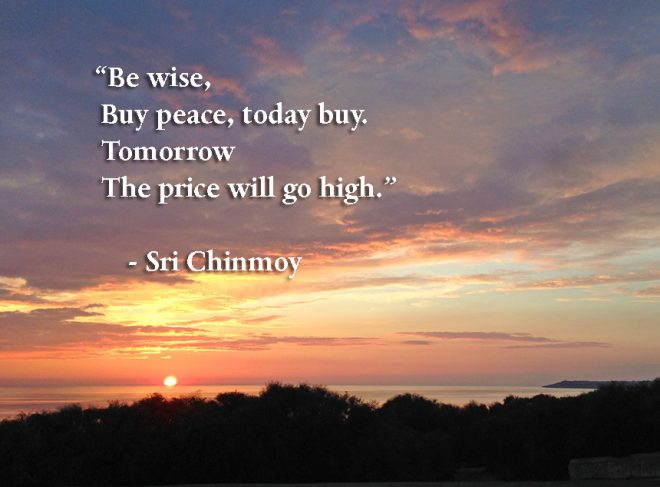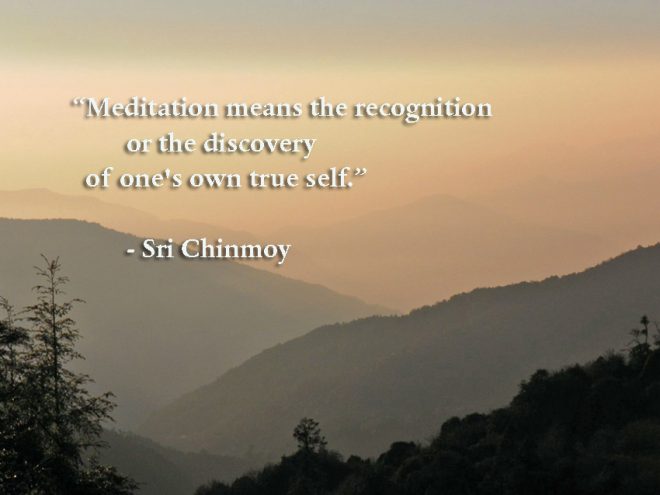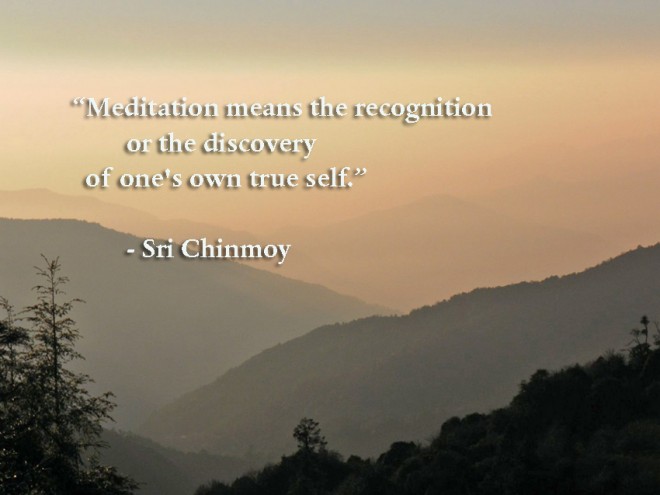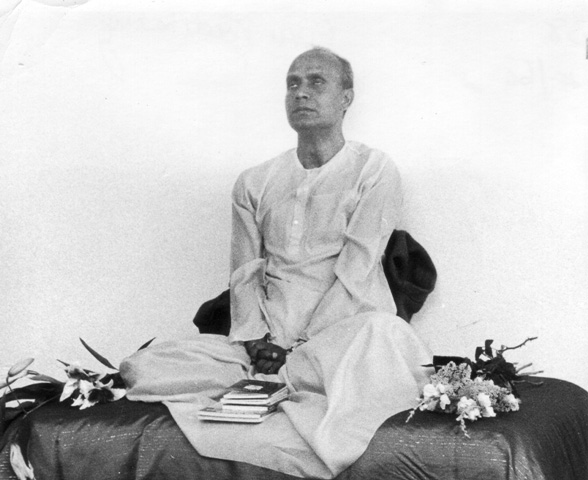
This is a thought-provoking aphorism on peace [Source] . What can we learn from it?
Peace is the most valuable quality
Without peace, all the material objects in the world will not give joy. It is peace which will make us inwardly rich, yet peace is often the thing the world lacks most.
“This world has everything
Save and except one thing,
Peace,
And this peace has to blossom
From within.”
– Sri Chinmoy [2]
Don’t wait for tomorrow
If something is good to do, now is the best time. If we have a bad habit, now is the best time to break it. Sometimes, we can feel ‘maybe when I am an old man and retired, I will then have the time to give up bad habits and meditate on peace.’ But, if we keep delaying, we may surrender completely to the bad habit and wrong way of living. By the time we are old, we are stuck with our bad habits. If we can see a new approach to life which will bring more peace of mind and happiness, we should choose this path straight away – whilst we still have the enthusiasm and aspiration. To meditate on peace requires determination and sincerity, the sooner we start the better.
How to buy peace?
We can’t buy peace with money. We can only buy peace with our own inner attitude. For example, sometimes we have to give up our pride in order to gain peace in return. If pride comes to the fore, it makes us unwilling to change and we can persist in a wrong course of action. But if we lose the desire to be proved right, then we can gain inner peace. If we live in a state of desire and expectation, we will not experience peace because some desires will always remain unfulfilled and we will feel frustration. This is the price for attaining peace – giving up our desire and pride.
Escalation of conflict or choosing peace
In life we come across situations where we have a choice how to respond. One choice is to respond to an initial confrontation with escalating the conflict. If we have hurt feelings, the response of the mind and vital is invariably to retaliate. If we feel hurt, we subconsciously want to project this back onto others. But, this tit for tat attitude will make peace more distant and harder to achieve.
The other response is to invoke the heart and the quality of peace. Rather than retaliating, the heart can be sympathetic to the struggles of others, and we seek to be the one to let go of the unfortunate situation. This magnanimous attitude is often the best way of bringing the good qualities of others to the fore. If someone else is full of anger, we won’t diminish their anger by getting angry in response. But, if we remain calm and peaceful, they will respond in a better way. Through forgiveness and maintaining our inner peace, their conscience will come to the fore and secretly they will be inspired by our calm attitude.
No price is too great to pay for inner peace.
“No price is too great to pay for inner peace. Peace is the harmonious control of life. It is vibrant with life-energy. It is a power that easily transcends all our worldly knowledge.”
– Sri Chinmoy [3]
Choosing inner peace does not mean sacrificing principles and truth. It means we reject the negative emotions of jealousy and pride, but invoke a real and meaningful quality of peace instead. It means whatever happens in the outer world, we hold onto our inner peace.
This inner peace is more than just intellectual understanding. We have to pray, meditate and serve to gain a real sense of peace. The peace that comes from the heart is a powerful reality that will convince the mind.
Related
Quotes on peace
The secret of inner peace by Sri Chinmoy







